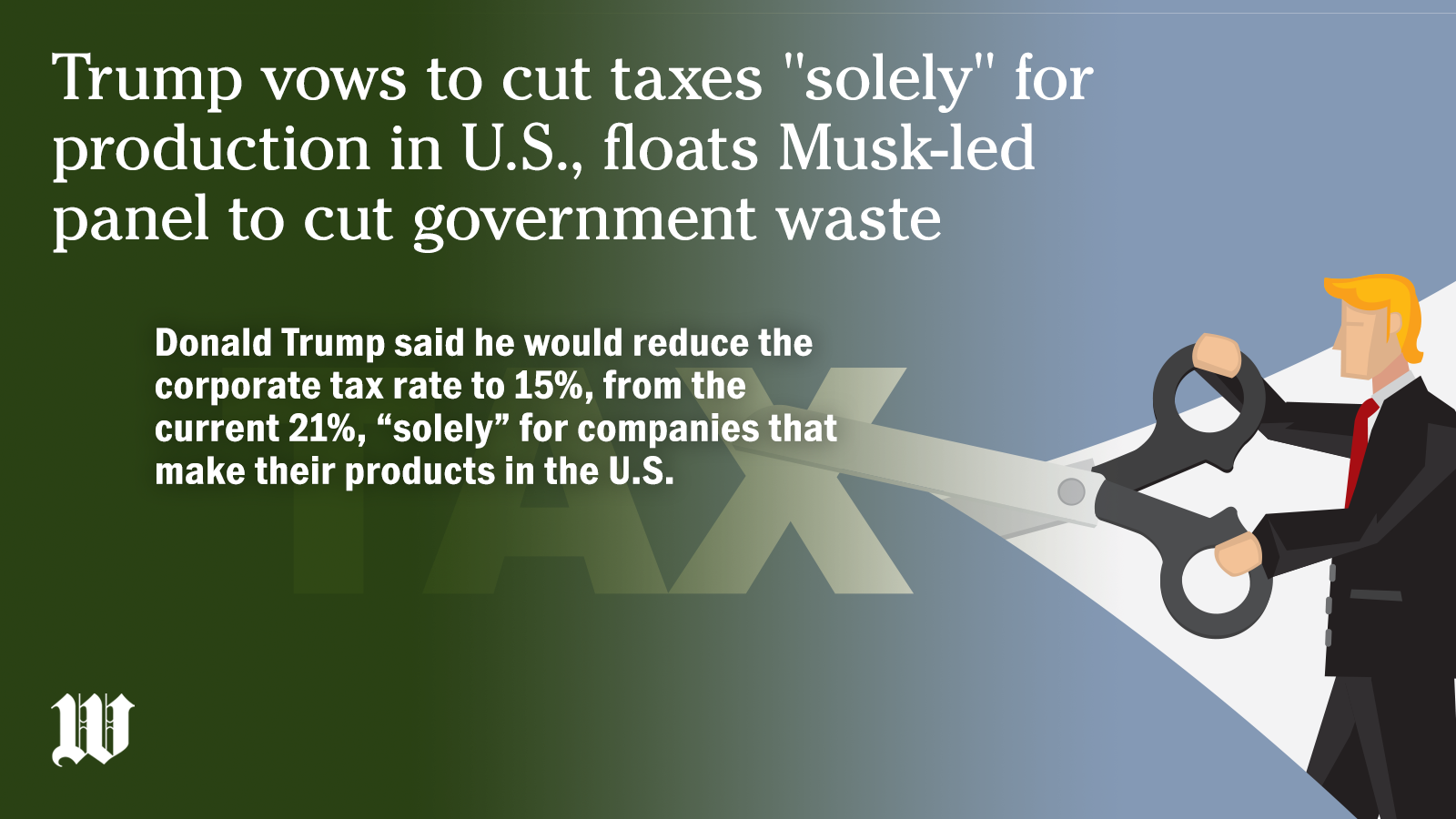Republican nominee Donald Trump is going all in on protectionist economic policies as a way to connect with voters who are feeling squeezed by high prices.
Speaking at the New York Economic Club on Thursday, Mr. Trump said he would pursue a menu of tax and trade policies to encourage businesses to stay in the U.S. and to unleash a “national economic renaissance.”
The former president also said he would slash federal regulations and that billionaire entrepreneur Elon Musk, who has endorsed his bid, has agreed to lead a government efficiency commission tasked with auditing the federal budget and recommending reforms targeting fraud and wasteful spending.
Mr. Trump said he would enact tariffs to bolster the auto industry and fight to reduce the corporate tax rate to 15%, from the current 21%, “solely” for companies that make their products in the U.S.
“If you outsource, offshore, or replace American workers, you are not eligible for any of these benefits,” Mr. Trump told the business leaders in Manhattan.
Mr. Trump had previously cut the corporate tax rate from 28% to 21%.
“If you open your factory in Wisconsin, Pennsylvania, Michigan, Minnesota — anywhere else in our country — you don’t pay a tariff tax,” he said. “But if you move your production outside the United States and send it back here, which people are doing now…. Then you will have to pay a very substantial tariff to get your product back into the country.”
“My message is simple: Make your product here in America, and only America,” Mr. Trump said.
He said his vision starkly differs from his rival, Vice President Kamala Harris, who wants to increase taxes on higher-income earners, long-term capital gains and corporations.
“Comrade Kamala Harris wants to sacrifice our wealth, kill the economy and drive jobs overseas to punish business more,” he said. “This will lead America into a 1929 Depression.”

Polls have consistently shown that the economy is voters’ chief concern and that Mr. Trump is more trusted than Ms. Harris on that front.
Ms. Harris, though, is still locked in tight contests in battleground states across the country. She has started to fill in parts of her economic vision.
Ms. Harris vowed to establish a federal ban on corporations’ “price gouging on food and groceries.” This would involve setting rules around price-setting and is based on the notion that companies used the global pandemic to pad their pockets.
Ms. Harris also announced this week she wants to expand tax deductions for small business startups and increase the long-term capital gains tax for top-income earners to 28% from 20%.
That marked a split with President Biden, who advocated raising the tax to 39.6%.
Meanwhile, Mr. Trump seeks to extend the “Trump tax cuts” he signed into law in 2017. The GOP nominee heralded this as an economic boom, while Democratchidedde it as a giveaway to the wealthy that will increase deficits.
Mr. Trump is also calling for no taxes on restaurant tips, and eliminating taxes on Social Security income.
He said Thursday that a Harris victory would spell economic disaster.
“She wants four years more years to enforce a radical left agenda that poses a fundamental threat to the prosperity of every American family and America itself,” he said.
• Seth McLaughlin can be reached at smclaughlin@washingtontimes.com.



Please read our comment policy before commenting.